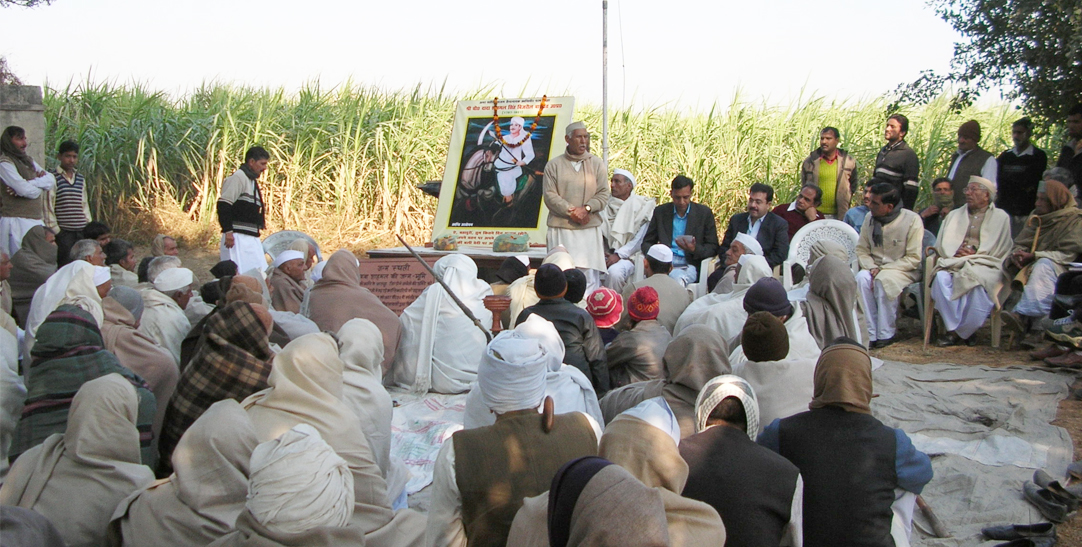
SHAH MULL OF BIJRAUL AND THE ESTABLISHMENT OF A MARTYR’S MEMORIAL
One of the greatest battles in the history of the War of Independence 1857 was fought in the region of Baraut and Baghpat to the west of Meerut. I call it one of the greatest battles not because of its scale, or its impact on the events of 1857. I call it great because here we see a direct confrontation between an army of peasants, mostly farmers, and the army of the East India Company which had all the three arms of the cavalry, infantry and artillery within it. This Company army was not just comprised of Indian irregulars led by British officers, as was the situation in many of the retaliatory military operations undertaken in the Indian countryside during 1857 by the British authorities. Here infantry soldiers of a crown regiment were sent in, supported by British artillery guns, to fight an army of simple peasants.
These farmers of Baraut, with limited means of warfare at their disposal, created an army of about 3500 men, mostly infantry, but also having a small cavalry segment, Shah Mal leading them on horseback. They must have possessed primitive muskets and weapons like swords and spears.
Shah Mull belonged to village Bijroul near the town of Baraut (Dist. Baghpat in north-western Uttar Pradesh, bordering Haryana state). He was a prosperous farmer of the area and held considerable standing in the region. He started operating and organising the farmers of his area against British rule just after the Meerut outbreak, but his activities started taking concrete shape around the last week of May 1857.
This small peasant army had become strong enough to force the Company authorities to mount an attack on it with a group of regular soldiers. This reflects on the character of these peasant fighters and the social organisation that they belonged to. They were mostly Jats, but the other social groups of this region like the Gurjars, Rajputs, Tyagis etc, both Hindu and Muslim, were also liberally represented.
There is no count of how many village folk died fighting in these battles. These simple farmers paid dearly for their audacity to stand up against the greatest power in the world of that time.
After the fall of Delhi retaliatory strikes were undertaken on those of Bijraul who participated in the Uprising. The house of Shah Mull was burnt and 26 of the leaders were hanged from a tree close to the village.
In 2007, a memorial was established at the site of hanging and yearly programs are held here since then. The memorial carries a short history of the events linked to the village.





